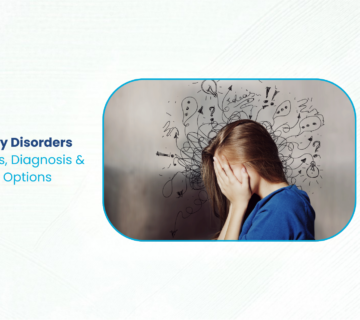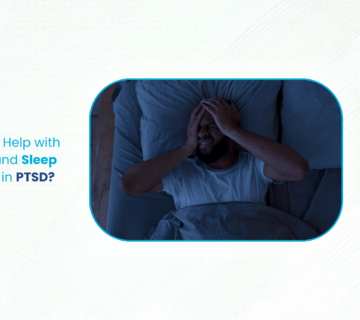Stress quietly disrupts our busy lives, leading to anxiety and depression. Its physical impact often goes unnoticed. Studies link mental stress to body pain, particularly back pain.
This raises a key question, “Can stress cause back pain?” Understanding this link is vital for health management. By understanding and managing stress and back pain, we can live healthier.
Are you feeling stressed? Consider professional help. Today Telemedicine offers solutions for stress and health. Our urgent care swiftly addresses medical issues. Reach out to us for assistance and details. We’re here to improve your life quality.
First, we’ll explore how stress causes back pain. Then, we’ll share tips to ease discomfort. Let’s uncover the stress-back pain link to improve health.
Understanding the Connection between Stress and Pain
Stress leads our bodies to produce adrenaline and cortisol. These hormones get us ready to face challenges or to run from danger.
It’s effective in short crises. However, prolonged stress keeps our muscles tense and nerves on edge. This constant tension leads to physical problems. A common one is back pain. Low back pain affects millions.
Up to 80% of Americans experience it at least once. It causes much disability and suffering. It lowers the quality of life and productivity.
Can Stress Cause Back Pain?
Yes, Stress often leads to tension in the neck and shoulder muscles. It can lead to back pain. Chronic stress might worsen posture, straining muscles more.
It can also make pain feel worse. Relaxation techniques can help by reducing stress and easing symptoms. Caring for emotional health is important in relieving back pain.
The Role of Cortisol: How Does Stress Cause Back Pain?
Chronic stress raises cortisol, harming muscles and joints. This hormone increases pain, trapping the body in a cycle of aches. Those with back pain often fall into this trap.
As stress grows, so do muscle tightness, headaches, and joint inflammation. A weakened immune system then struggles to heal. This leaves the body open to further issues like high cortisol and joint pain.
It’s vital to escape cortisol’s grip. It’s crucial to managing stress-induced back pain and improving health. We must first understand the link between cortisol and pain for relief.
Connection between Stress and Nerve Pain
Stress can cause or worsen nerve pain. It triggers inflammation and increases muscle tension. This affects the nervous system. Stress leads to tighter and more sensitive muscles, especially around nerves.
So, when someone asks, “Does stress cause nerve pain?” the answer is yes. It can lead to sensations like tingling, burning, or shooting pain.
How Stress Affects the Musculoskeletal System?
Stress induces muscles to firm up for defense. This quick response is helpful but harmful if it lasts too long.
Limited movement, bad posture, and anxiety often arise from ongoing upper-body muscle strain. If this tension isn’t addressed, it leads to a cycle of pain and stiffness.
It also harms the spine and joints over time. Inflammation increases, and conditions like arthritis get worse.
The body, unable to relax, starts to feel back pain from stress, creating a cycle of tension and discomfort.
What Does Back Pain from Stress Feel Like?
Stress-related back pain often involves tension, stiffness, and aches. Its intensity depends on your body’s stress reaction. Common experiences include:
- Muscle Tightness: Stress tightens muscles, especially in the back, shoulders, neck, and lower back. This leads to constant aching or stiffness.
- Aching or Dull Pain: Stress-induced back pain often a persistent, dull ache. It can feel like pressure or throbbing, disrupting comfort and movement.
- Sharp Pain with Movement: Simple actions like bending or lifting can trigger sharp pain. This reflects the body’s tension.
- Burning Sensation: Strained back muscles cause sharp pain from overexertion. Rest helps, but to avoid flare-ups, use proper form and increase intensity gradually.
- Radiating Pain: Strain can stretch to the shoulders, neck, and legs.
- Stiffness: After a stressful day, mornings can be tough. Stiffness makes movement hard, limiting simple tasks.
Mental strain can mimic physical injuries like back pain from anxiety, often rooted in emotional tension.
Can Stress Cause Buttock Pain?
Yes, body stress can appear suddenly. Buttock pain, for example, can be a sign of stress, which is often caused by tight back muscles.
This is especially common in people who have desk jobs. Prolonged sitting can tighten hip muscles, resulting in buttock pain.
Recognizing this connection is crucial to finding a solution.
Effective Ways to Manage Stress and Back Pain
Stress causes back pain, but solutions are available. Managing stress can relieve discomfort. Techniques exist to break this cycle, enhancing well-being. Addressing both mind and body offers the best ways to reduce stress and relieve muscle pain.
-
Mindfulness and Meditation
Relax your mind and back. Mindfulness and meditation reduce stress and ease tense muscles. These methods provide quick relief and long-term benefits. Regular meditation promotes relaxation, cuts back pain, and improves overall health. So, seek inner peace for a healthier spine.
-
Regular Physical Activity
Regular exercise eases muscle tension, especially in the back. Yoga stretches tight muscles. Brisk walks ease stiff joints. Just 30 minutes of daily movement reduces stress. Your body needs this release. So, gift it with motion. Let activity bring calm, washing away rigidity.
-
Deep Breathing Exercises
Breathe in deeply, then out to release stress. Slow breaths relieve muscle tension and pain. This practice calms your body and mind. Deep breathing counters back strain, easing tension with each breath. Learn this method for relief and relaxation whenever needed.
-
Consult an Expert
Chronic stress and pain need a doctor’s advice. They identify causes, suggest treatments, and teach coping strategies. Options include physical therapy, counseling, or medication for nerve pain. Expert help is key for management and relief.
-
Posture Awareness
Stand tall, sit straight, and feel better. Being mindful of your posture can ease back pain and anxiety. Design your workspace with careful consideration. Good posture, whether at work or play, boosts comfort and eliminates aches. Being aware of how you carry yourself reduces discomfort and improves well-being.
Conclusion
To sum up, can stress cause back pain? Yes, it can. Stress and back pain are linked. Each can make the other worse.
Research shows mental strain can lead to physical pain. But there are solutions. Techniques like relaxation, exercise, and good posture benefit both the mind and body.
If self-care isn’t enough, professional help is crucial. Holistic health practices connect mind and body, creating harmony and overall wellness. They promote a balanced, pain-free life.
Reducing stress not only eases back pain but also improves overall health. It’s crucial to recognize mental health’s role in physical recovery. Take control, seek help, and aim for balance.
FAQs
Is low back pain associated with depression and anxiety?
Yes, low back pain often links to depression and anxiety, crafting a hurtful cycle. Chronic pain can lead to mental distress, while psychological issues can worsen physical pain. This interaction increases suffering, combining physical and emotional problems. Understanding this connection is key to effective treatment and relief.
Can stress cause shoulder pain?
Yes, stress can create shoulder pain. Tense, stiff muscles often develop in the neck and upper back. This strain frequently causes shoulder discomfort or pain.
Can anxiety cause upper back pain?
Yes, anxiety can cause upper back pain. Muscle tension and stress cause tightness and discomfort. Chronic pain often comes from long-term anxiety. It increases tension in the body.





